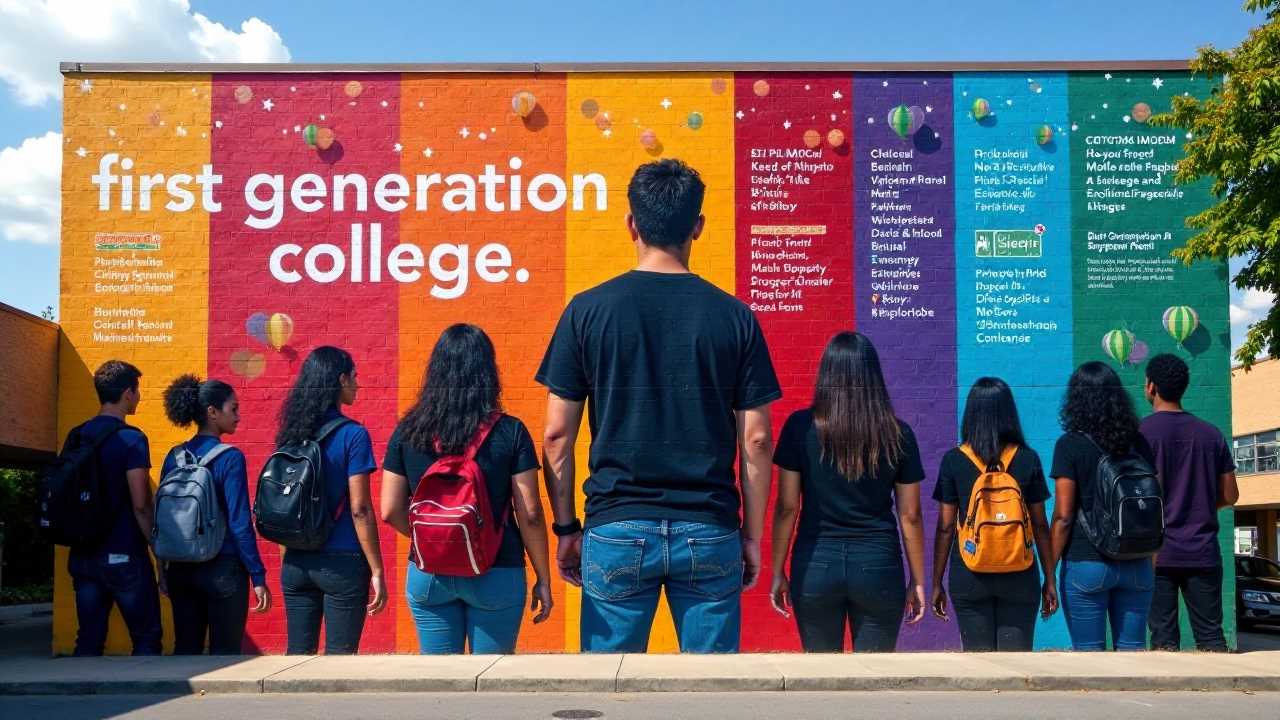
Understanding the Unique Challenges Faced by First-Generation College Students
First-generation college students often encounter a range of challenges that can impact their academic journey. These students are typically the first in their families to pursue higher education, which can lead to feelings of isolation and uncertainty. Without the benefit of familial experience in navigating college life, they may struggle with understanding the academic landscape, financial aid processes, and available resources. Recognizing these challenges is the first step in providing effective first-generation college student support.
Academic Resources: Building a Strong Foundation
Access to academic resources is vital for first-generation college students. Institutions should offer comprehensive support systems that include tutoring services, writing centers, and study workshops. These resources empower students to strengthen their study skills and improve their academic performance.
Many colleges provide online platforms where students can access course materials, participate in discussion forums, and connect with faculty. Utilizing these resources can help students stay organized and engaged in their studies. Additionally, libraries often host workshops on research techniques and citation styles, which are invaluable for academic success.
Mentorship Programs: Guiding the Way
Mentorship programs play a crucial role in the development of first-generation college students. Pairing students with mentors who have similar backgrounds or experiences can provide guidance and encouragement. These mentors can help students navigate the complexities of college life, offering insights into academic expectations and career pathways.
Institutions should actively promote mentorship opportunities, encouraging faculty, alumni, and upperclassmen to participate. Regular meetings and check-ins can foster strong relationships, allowing students to seek advice on academic challenges, internships, and networking opportunities.
Financial Aid: Navigating the Funding Landscape
Understanding financial aid options is essential for first-generation college students. Many may not be aware of the various scholarships, grants, and loans available to them. Colleges should provide workshops that explain the financial aid process, helping students complete the Free Application for Federal Student Aid (FAFSA) and understand their financial aid packages.
Additionally, institutions can create resources that outline scholarship opportunities specifically for first-generation students. By simplifying the financial aid process and providing personalized assistance, colleges can alleviate the financial burdens that often accompany higher education.
Campus Involvement: Fostering a Sense of Community
Encouraging campus involvement is key to helping first-generation college students feel connected and engaged. Participation in student organizations, clubs, and campus events can enhance their college experience and provide a sense of belonging.
Colleges should actively promote these opportunities, ensuring that first-generation students are aware of the various groups they can join. Creating inclusive environments where students can share their experiences and learn from one another is vital for building community.
Study Skills: Mastering Academic Success
Developing effective study skills is fundamental for first-generation college students. Institutions should offer workshops that teach time management, note-taking strategies, and exam preparation techniques. These skills are crucial for academic success and can significantly impact students' performance.
Encouraging students to form study groups can also enhance their learning experience. Collaborative learning allows students to share knowledge, clarify concepts, and support one another in their academic pursuits.
Networking Opportunities: Building Professional Connections
Networking opportunities are essential for first-generation college students as they prepare to enter the workforce. Colleges should facilitate connections between students and professionals in their fields of interest. Career fairs, guest speaker events, and alumni panels can provide valuable insights and opportunities for students to expand their professional networks.
Institutions can also offer workshops on networking strategies, including how to create effective resumes, conduct informational interviews, and utilize platforms like LinkedIn. By equipping students with the tools to network effectively, colleges can help them build relationships that may lead to internships and job opportunities.
A Holistic Approach to Support
Empowering first-generation college students requires a comprehensive approach that addresses their unique needs. By providing robust academic resources, fostering mentorship programs, guiding them through financial aid, encouraging campus involvement, teaching essential study skills, and creating networking opportunities, colleges can significantly enhance the academic experience for these students.
Through collaboration and commitment, we can create an environment where first-generation college students thrive, paving the way for their success and the success of future generations.
 Careers in EducationElementary EducationHigh School EducationEducational TechnologyTeaching StrategiesSpecial EducationPrivacy PolicyTerms And Conditions
Careers in EducationElementary EducationHigh School EducationEducational TechnologyTeaching StrategiesSpecial EducationPrivacy PolicyTerms And Conditions
